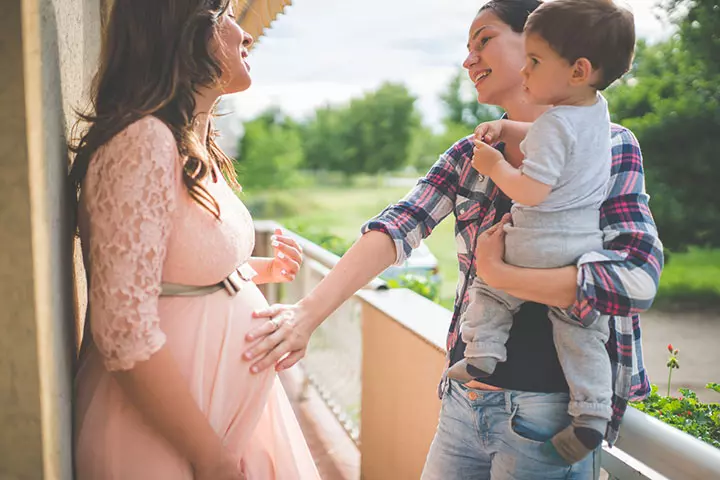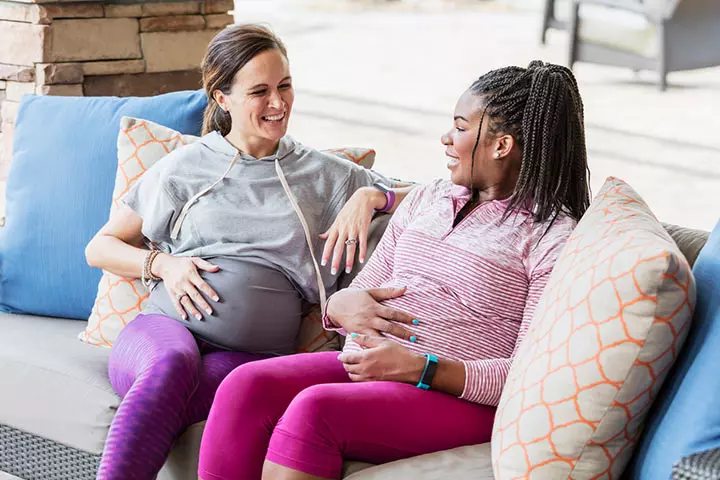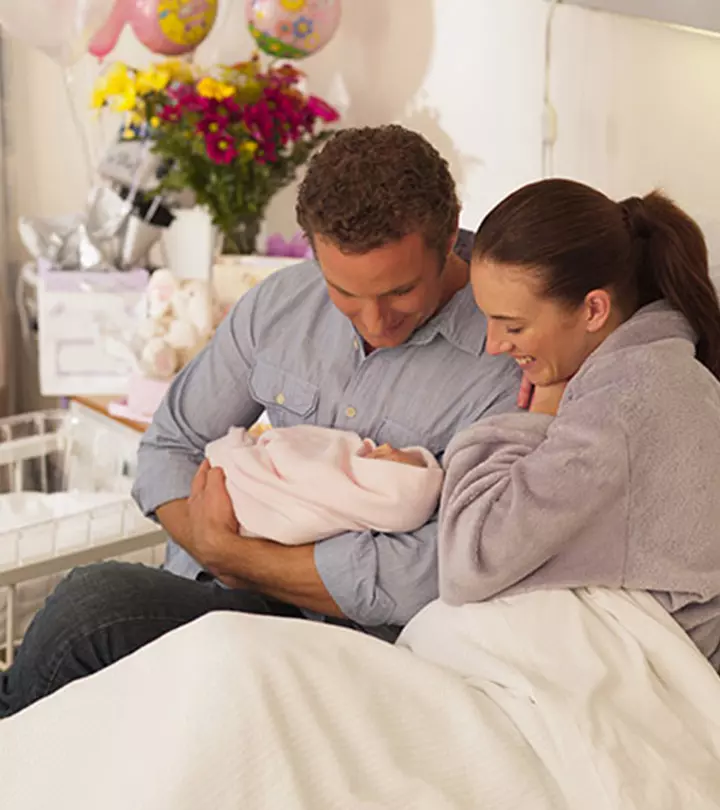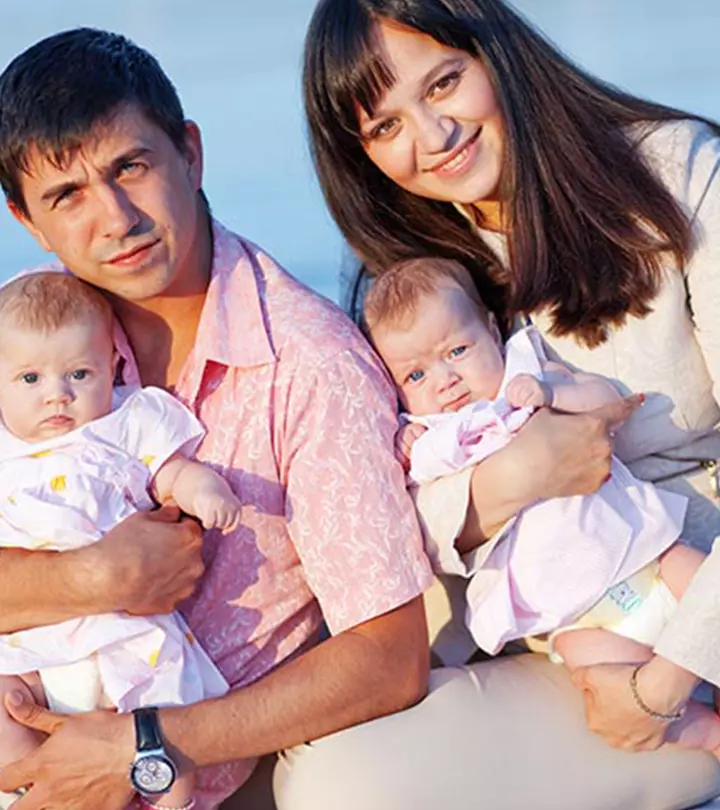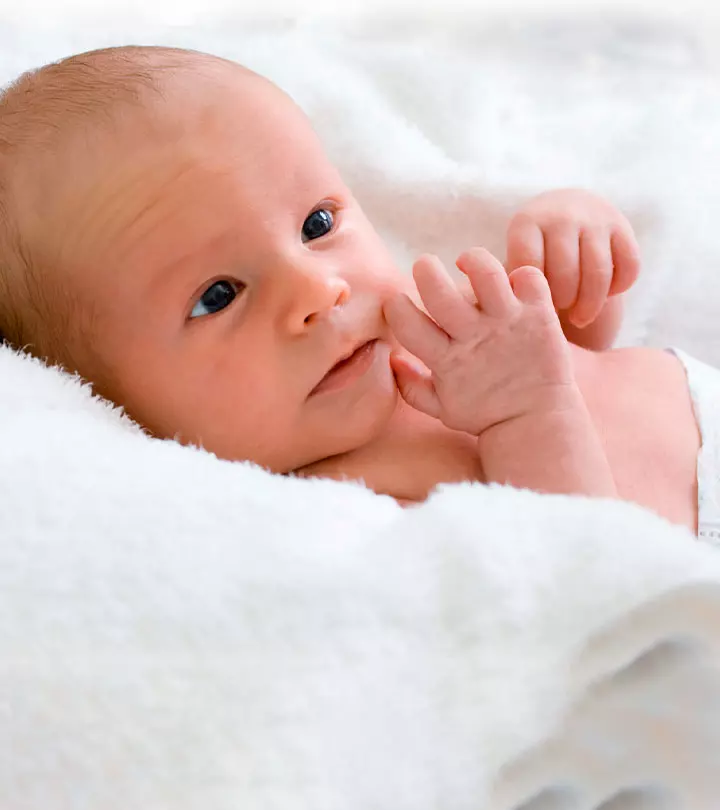

Image: iStock
Our peers have a big influence on various aspects of our lives without us even knowing about it. From what car we buy to which restaurants we visit, we unknowingly get influenced by our friends and families in our decisions. So, is it possible that a couple’s decision to have a baby is also influenced by such social interactions? Many of us would probably disagree on first thought. After all, we like to think that we make our own decisions. When it comes to an important decision like having a baby, we like to think that it’s our own decision and not because of peer influence. However, more and more social research has indicated that social and peer influence does play an important part in us deciding to have a baby.
A study conducted by the American Sociological Review in 2014 has confirmed that fertility behavior in friends can affect an individual’s decision to have a child (1). So, don’t be surprised when you start realizing that many of your friends had their children around similar times. Let’s learn more about how this intriguing phenomenon happens in a social circle:
What Does The Research Say?
Image: IStock
The study was based on social research that aimed to study the effects of interpersonal relationships: the community, kith, and kin relationships that impact human behavior. Over a period of 10 years, 1700 women were studied between 1995 to 2005 to confirm the hypothesis. The sample population consisted of women who have been friends for the longest time and how their relationship affected their decision to become pregnant. They draw a strong correlation between a friend’s fertility decision and observable similarity in one’s own behavior (1).
And to think of it, it isn’t difficult to digest the idea that our subconscious does get influenced when many of our friends or family are planning to have babies. It’s only natural to feel like the time is right to take the next big decision of our lives. And our friends also going through a similar situation makes us feel less apprehensive and isolated in this journey. We feel a sense of assurance that we are on the same boat as many of our friends and feel a deeper connection with them.
How Do ‘Other’ People Affect Your Decision To Become Pregnant?
Image: IStock
Studies show that family is the primary source of socialization. At the very early stage of life, the family transmits fertility behavior and attitudes in the individual. Parents, siblings, and other relatives become a part of our daily interaction which shapes our outward as well as inward behaviors. As we grow up, our friend circles become an integral part of our lives. Many times, we are closer to some of our friends and their families than our own. This is especially true for the city dwellers for whom often their work circle also becomes their close friend circles.
As societies have become more individualized, friends have perhaps become equally or more important than family. This has been attributed to two reasons:
- Smaller families with one or two children have become the norm in the present times. Close friends have become a greater source of love and care, sometimes more than siblings. Thus, interactions with friends can shape one’s choices.
- One is free to choose friends they share the same interests with. Your mates share important interpersonal and social relationships through social settings like schools and workplaces. In comparison with ascribed family relationships, voluntary relations have gained prominence. Apparently, these voluntary relationships are more likely to shape your decision to have a child.
Another source of influence that leads to pregnancy, especially among younger people, is the case of unprotected sexual intercourse. Research indicates that the ones having friends indulging in unprotected sex are at a higher tendency to mimic the behavior. Even family situations can play a part, with young adults not under the direct supervision of parents having a higher tendency to interact in unprotected sexual activities (2). As we very well know that chances of pregnancy are higher with couples who engage in unprotected sex. Thus, social influence can work towards causing pregnancy in young adults as well, albeit in a different context compared to responsible adults.
How Do Friends Influence Your Fertility Choices?
Image: IStock
Fertility research has shown two ways in which social interactions work: social learning and social influence (1).
- The theory of social comparison explains social influence. Individuals try to match their behavior with those they share similar social positions with or those who share strong characters. Social norms direct what’s fitting and acceptable and people end up following and doing such dictates without thinking much about them. This, too, shapes an individual’s conduct. So, those whose friends have children are more likely to become parents than those who don’t.
- Social learning through friends can also have a contagion effect. As part of the learning process, friends set an example that impacts a person’s behavior. Their personal experiences can educate you about the journey into parenthood, the associated uncertainties and costs involved, the changes you would undergo, and the support system you can bank upon.
- The feeling of “missing out” or being left alone considerably reduces when friends share the journey of pregnancy and parenthood. So, a friend’s childbearing is likely to trigger one’s own, at least with the first child. One possible reason to explain this behavior is that when other pregnant women surround a woman, she could be inspired to start her own family. When friends get pregnant, one finds greater confidence in taking the plunge.
Friends and peers are thus part of the social influence dynamic that colors our decisions and judgments. The natural selection process of friends who share similar attitudes is likely to mold bonds along with childbearing decisions. So, with scientific research to support the importance of solid friendships in our lives, you have yet another reason to have a reliable network of dependable mates. Did you too become pregnant around the same time as your friends? Do share your stories with us in the comments section below.
References
- Does Fertility Behavior Spread Among Friends?
https://www.asanet.org/wp-content/uploads/savvy/journals/ASR/Jun14ASRFeature.pdf - Longitudinal Influences Of Friends And Parents Upon Unprotected Vaginal Intercourse In Adolescents
Community Experiences
Join the conversation and become a part of our nurturing community! Share your stories, experiences, and insights to connect with fellow parents.

